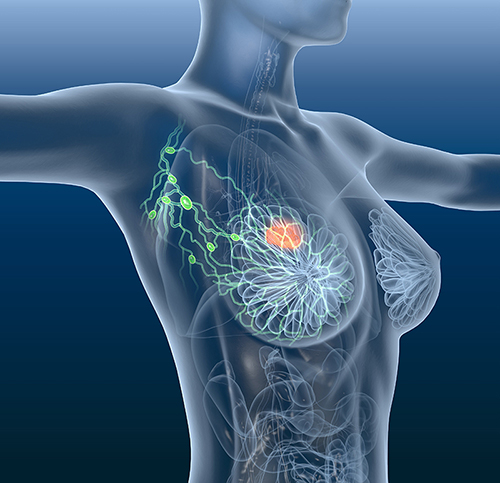n 2020, 25,306 portuguese women were diagnosed with cancer. 28% of which were breast cancer, according to the report “Country Health Profile 2021,” released by the OECD, in partnership with the European Observatory on Health Systems and Policies and the European Commission. In practice, it translates into more than seven thousand cases, which resulted in 1800 deaths. Although much more frequent in the female population, the Portuguese League Against Cancer reports that one in every 100 men are caught by the disease.
Worldwide, there are an estimated 2.3 million annual cases and 685 thousand deaths. This scenario is dictated, in part, by the inability of patients to respond positively to treatment, often because there are genetic and molecular variations that make it ineffective.
Today, lines of research are looking for individualized solutions, tailored to each patient and their tumor, and even use is being made of genomic technology combined with scanning, which makes it possible to evaluate DNA, RNA, proteins, and metabolites. However, these techniques only reach highly specific cases and cannot be applied universally.
Science continues to try to solve this obstacle, in order to ensure that the treatment is appropriate and brings positive results, saving countless lives and prolonging others. And it is to this end that supercomputing has been particularly useful, as it is helping to develop an easy-to-use platform called JADBio autoML to identify the drugs most likely to be effective for each patient before starting treatment, using the molecular profile of each patient.
What is being done? And how?
The British company CHOSA – which is dedicated to developing techniques to predict the results of anticancer treatments – in partnership with professionals in molecular pharmacology and identification of cancer biomarkers from the Hellenic Mediterranean University (Greece), and also with the Greek company JADBIO – responsible for developing the platform, using machine learning (ML) – began by analyzing an extensive database that links 60 human cancer cell lines (associated with different types of cancer) to the anticancer activity of more than 50,000 compounds (drugs). Already here, high performance computing proved essential for the short time it was possible to do it.
From the nearly 50,000 compounds (which include established drugs or newly developed mixtures of them), using specific quality criteria, 5,986 were selected to proceed to further analysis. The JADBio autoML (Machine Learning) platform and other HPC resources proved particularly relevant from this stage on, as they enabled the construction of machine learning models of the nearly 6,000 selected compounds in order to be able to estimate the performance of each of them in anticancer treatments.
The final accounts show that 119 of the models built have significant predictive power and 8 of them appear to be particularly relevant for breast cancer.
After the remaining validation phases, a kind of database will become available, the Allied Intelligence for Drug Accuracr (AÏDA) that predicts the effectiveness of different cancer drugs for each patient. In this way, doctors will be able to access a document with a large number of drugs, in which the ones that are most likely to work for a particular patient’s cancer are highlighted.
